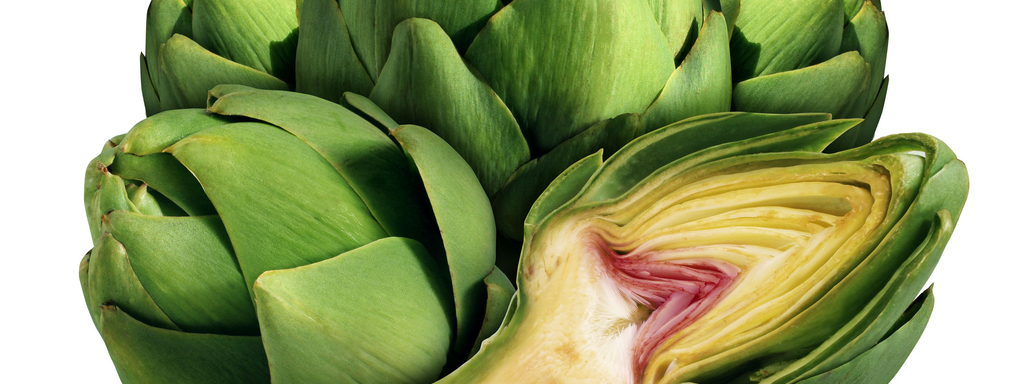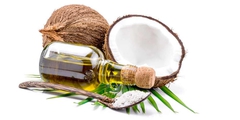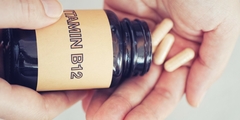
In vroegere taxonomische indelingen werd de artisjok als een aparte soort – Cynara scolymus L. – beschouwd. Op basis van recentere hybridisatie- en isozym-analyses wordt de artisjok nu meestal aanzien als een variëteit of subspecies van Cynara cardunculus L. De artisjok behoort tot de familie der asteraceae. Het woord ‘scolymos’ verwijst in het Oudgrieks naar het begrip ‘doornig’.
Beste bezoeker, u heeft geen toegang.
Enkel (web)abonnees hebben toegang tot tijdschriftartikelen. Het webabonnement is nog in de maak.
U kunt zich wel alvast (gratis) registreren en tal van andere webartikelen raadplegen!
Auteur
Trefwoorden:
Verschenen in
Referenties
Aberomand M, Naghoosi S, Basiryan E. Effect of cynara scolymus L on fasting blood sugar of rat. Int J Pharm Indust Res 2013;3:180-182.
Al-Ahdab MA. Protective effect of artichoke (Cynara scolymus L.) leaves and pulp extracts against carbon tetrachloride-induced acute hepatotoxicity in rats. Worl Appl Sci J 2014;32:1004-1014.
Barrat E, Zaïr Y, Ogier N et al. A combined natural supplement lowers LDL cholesterol in subjects with moderate untreated hypercholesterolemia: a randomized placebo-controlled trial. Int J Food Sci Nutr 2013;64:882-889.
Bundy R, Walker AF, Middleton RW, Wallis C, Simpson HC. Artichoke leaf extract (Cynara scolymus) reduces plasma cholesterol in otherwise healthy hypercholesterolemic adults: a randomized, double blind placebo controlled trial. Phytomedicine 2008;15:668-675.
Costabile A, Kolida S, Klinder A et al. A double-blind, placebo-controlled, cross-over study to establish the bifidogenic effect of a very-long-chain inulin extracted from globe artichoke (Cynara scolymus) in healthy human subjects. Br J Nutr 2010;104:1007-1017.
da Silva Oliveira GL, de Asevedo Mendes de Oliveira FR, Oliveira Barros de Alencar MV et al. Evaluation of antioxidant capacity of the aqueous extract of Cynara scolymus L. (Asteraceae) in vitro and in Saccharomyces cerevisiae. Afr J Pharm Pharmacol 2014;8:136-147.
Englisch W, Beckers C, Unkauf M, Ruepp M, Zinserling V. Efficacy of artichoke dry extract in patients with hyperlipoproteinemia. Arzneimittelforschung 2000;50:260-265.
Fantini N, Colombo G, Giori A et al. Evidence of glycemia-lowering effect by a Cynara scolymus L. extract in normal and obese rats. Phytother Res 2011;25:463-466.
Fissore EN, Santo Domingo C, Gerschenson LN, Giannuzzi L. A study of the effect of dietary fiber fractions obtained from artichoke (Cynara cardunculus L. var. scolymus) on the growth of intestinal bacteria associated with health. Food Funct 2015;6:1667-1674.
Fissore EN, Santo Domingo C, Pujol CA, Damonte EB, Rojas AM, Gerschenson LN. Upgrading of residues of bracts, stems and hearts of Cynara cardunculus L. var. scolymus to functional fractions enriched in soluble fiber. Food Funct 2014;5:463-470.
Gatto A, De Paola D, Bagnoli F, Vendramin GG, Sonnante G. Population structure of Cynara cardunculus complex and the origin of the conspecific crops artichoke and cardoon. Ann Bot 2013;112:855-865.
Gebhardt R. Inhibition of cholesterol biosynthesis in primary cultured rat hepatocytes by artichoke (Cynara scolymus L.) extracts. J Pharmacol Exp Ther 1998;286:1122-1128.
Giacosa A, Guido D, Grassi M et al. The effect of ginger (Zingiber officinalis) and artichoke (Cynara cardunculus) extract supplementation on functional dyspepsia: a randomised, double-blind, and placebo-controlled clinical trial. Evid Based Complement Alternat Med 2015:915087. doi: 10.1155/2015/915087.
Holtmann G, Adam B, Haag S, Collet W, Grünewald E, Windeck T. Efficacy of artichoke leaf extract in the treatment of patients with functional dyspepsia: a six-week placebo-controlled, double-blind, multicentre trial.Aliment Pharmacol Ther 2003;18:1099-1105.
Jacociunas LV, Dihl RR, Lehmann M et al. Protective activity of Cynara scolymus L. leaf extract against chemically induced complex genomic alterations in CHO cells. Phytomedicine 2013;20:1131-1134.
Jin S, Chang C, Zhang L, Liu Y, Huang X, Chen Z. Chlorogenic acid improves late diabetes through adiponectin receptor signaling pathways in db/db mice. PLoS One 2015;10:e0120842. doi: 10.1371/journal.pone.0120842
Lattanzio V, Kroon PA, Linsalata V, Cardinali A. Globe artichoke: a functional food and source of nutraceutical ingredients. J Funct Foods 2009;1:131-144.
Magielse J, Verlaet A, Breynaert A et al. Investigation of the in vivo antioxidative activity of Cynara scolymus (artichoke) leaf extract in the streptozotocin-induced diabetic rat. Mol Nutr Food Res 2014;58:211-215.
Miccadei S, Di Venere D, Cardinali A et al. Antioxidative and apoptotic properties of polyphenolic extracts from edible part of artichoke (Cynara scolymus L.) on cultured rat hepatocytes and on human hepatoma cells. Nutr Cancer 2008;60:276-283.
Mileo AM, Di Venere D, Abbruzzese C, Miccadei S. Long term exposure to polyphenols of artichoke (Cynara scolymus L.) exerts induction of senescence driven growth arrest in the MDA-MB231 human breast cancer cell line. Oxid Med Cell Longev 2015:363827. doi: 10.1155/2015/363827.
Nadova S, Miadokova E, Mucaji P, Grancai D, Cipak L. Growth inhibitory effect of ethyl acetate-soluble fraction of Cynara cardunculus L. in leukemia cells involves cell cycle arrest, cytochrome c release and activation of caspases. Phytother Res 2008;22:165-168.
Nassar MI, Mohamed TK, Elshamy AI, El-Toumy SA, Abdel Lateef AM, Farrag AR. Chemical constituents and anti-ulcerogenic potential of the scales of Cynara scolymus (artichoke) heads. J Sci Food Agric 2013;93:2494-2501.
Nazni P, Vijayakumar TP, Alagianambi P, Amirthaveni M. Hypoglycemic and hypolipidemic effect of Cynara scolymus among selected type 2 diabetic individuals. Pak J of Nutr 2006;5:147-151.
Ogier N, Amiot MJ, Georgé S et al. LDL-cholesterol-lowering effect of a dietary supplement with plant extracts in subjects with moderate hypercholesterolemia. Eur J Nutr 2013;52:547-557.
Pulito C, Mori F, Sacconi A et al. Cynara scolymus affects malignant pleural mesothelioma by promoting apoptosis and restraining invasion. Oncotarget 2015;6:18134-18150.
Qinna NA, Kamona BS, Alhussainy TM, Taha H, Badwan AA, Matalka KZ. Effects of prickly pear dried leaves, artichoke leaves, turmeric and garlic extracts, and their combinations on preventing dyslipidemia in rats. ISRN Pharmacol. 2012;2012:167979. doi: 10.5402/2012/167979.
Ramadan A, Nehal AA, Nemat ZY, Rehab FA, Azza HMH, Hany MF. Hepatoprotective effect of artichoke extract against pre-cancerous lesion of experimentally induced hepatocellular carcinoma in rats. Life Sci J 2014;11:43-50.
Rondanelli M, Giacosa A, Opizzi A et al. Beneficial effects of artichoke leaf extract supplementation on increasing HDL-cholesterol in subjects with primary mild hypercholesterolaemia: a double-blind, randomized, placebo-controlled trial. Int J Food Sci Nutr 2013(a);64:7-15.
Rondanelli M, Giacosa A, Orsini F, Opizzi A, Villani S. Appetite control and glycaemia reduction in overweight subjects treated with a combination of two highly standardized extracts from Phaseolus vulgaris and Cynara scolymus. Phytother Res 2011;25:1275-1282.
Rondanelli M, Monteferrario F, Perna S, Faliva MA, Opizzi A. Health-promoting properties of artichoke in preventing cardiovascular disease by its lipidic and glycemic-reducing action. Monaldi Arch Chest Dis 2013(b);80:17-26.
Skarpañska -Stejnborn A, Pilaczynska-Szczesniak L, Basta P, Deskur-Smielcka E, Horoszkiewicz-Hassan M. The influence of supplementation with artichoke (Cynara scolymus L.) extract on selected redox parameters in rowers. Int J Sport Nutr Exerc Metab 2008;18:313-327.
Sonnante G, Pignone D, Hammer K. The domestication of artichoke and cardoon: from Roman times to the genomic age. Ann Bot 2007;100:1095-1100.
The Cynares International Project: www.cynares.com (geraadpleegd op 27.07.2015).
Villiger A, Sala F, Suter A, Butterweck V. In vitro inhibitory potential of Cynara scolymus, Silybum marianum, Taraxacum officinale, and Peumus boldus on key enzymes relevant to metabolic syndrome. Phytomedicine 2015;22:138-144.
Yasukawa K, Matsubara H, Sano Y. Inhibitory effect of the flowers of artichoke (Cynara cardunculus) on TPA-induced inflammation and tumor promotion in two-stage carcinogenesis in mouse skin. J Nat Med 2010l;64:388-391.





